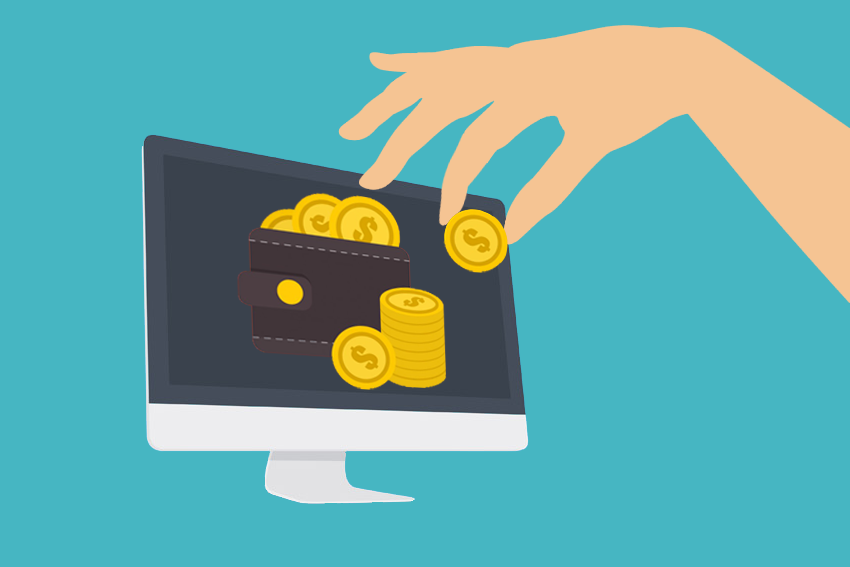You have probably heard about it before. Maybe you’ve read an article somewhere on the internet talking about how revolutionary it is. Maybe your friend mentioned something about ‘mining’ and how he is earning easy bucks from it. Or maybe your father told you how it was all a big scam that will one day ruin the economy.
But what really is bitcoin? What does it do? And how does it work?
We will try to answer all of that here.
“The Man” who started it all

Many consider Bitcoin as a revolutionary technology. Experts speculate that it will change the way we conduct transactions and view money in the future. For an invention as significant as this you would expect the inventor to be ridiculously famous by now, right?
Wrong.
Everyone knows that Satoshi Nakamoto created Bitcoin—but no one knows who he really is. People are not even certain whether Satoshi is actually a single individual or a group of people. This is because “Satoshi Nakamoto” is an alias which the Bitcoin creator used when he published a paper describing the proposed digital currency.
Though Satoshi himself claimed he was a 37-year-old male living in Japan, many people dispute it because of his perfect English and tendency to use British spelling and slang. His activity patterns in the Bitcoin forums also suggest that he lives somewhere in North or South America.
If there is one thing we know for sure about Satoshi, it is the fact that he shuns publicity of any kind.
What is bitcoin and what does it do?
You can think of bitcoin as digital money. But thinking of it exclusively in that sense is a mistake. It does not function like your ATM or debit card since bitcoins are not controlled by any bank which acts as an intermediary in facilitating your transactions.
Bitcoin is a cryptocurrency: a digital currency which uses encryption techniques to secure and facilitate your transactions. This means that it can operate independently of a central bank, making it decentralized. This means that no central bank or government regulates it.
All this information sounds technical and complicated. But what does it really mean for potential users? The points are simplified below:
1. Transactions are faster since they do not pass through a third party (i.e. a bank) for processing and confirmation.
2. Transaction fees are way less. In fact, they are so miniscule that it can almost be considered free.
3. Governments cannot freeze your assets since bitcoins are not held by banks or physically held in one place.
4. This also means that the value of your money cannot be affected by decisions of banks or governments (such as when they decide to print more money to pay debt and thus decreasing the value of your currency)
How does bitcoin work?

There is no single entity or institution like a bank that maintains or keep track of all the transactions, then how do we know the statuses of all accounts? Well, everyone who uses bitcoin keeps track of it through a public ledger called the blockchain.
There are people called miners who maintain and check the public ledger, their incentive being the little fee they earn, which is generated by the system as a reward.
Miners are the heart of the bitcoin system. They secure the entire system by making sure that hackers or attackers cannot disrupt it by checking every transaction. Every time a transaction takes place, miners check and process it to confirm its validity and keep the public ledger up to date. This way everyone in the bitcoin network is kept updated with every transaction around the world.
An interesting thing about the blockchain is that it keeps a record of every transaction that ever happened. It has records of the first bitcoin transaction ever made back in 2009 and up to the present. This means that bitcoin is very transparent (though still anonymous) and makes perpetrating fraud very hard.
Mining provides the necessary infrastructure of the bitcoin system. While banks have to maintain vaults, hire employees, security personnel, and rent buildings to operate, bitcoins in comparison rely on the collective effort of its miners and patronage of its users. In bitcoin, everyone is the bank.
How secure is Bitcoin?
Bitcoin transactions are very secured. The system uses encryption techniques and complex mathematical algorithms to secure every transaction. As discussed before, it is extremely hard for hackers to tamper with the system since miners constantly confirm and check transactions all over the world. Also, unlike coins or money bills, bitcoins are not material objects that can be physically stolen, lost, or misplaced.
The system though is not perfect. As the technology evolves, so do hackers and their methods. Financial malwares that specifically target bitcoin have emerged with over 140 viruses identified. Nevertheless, bitcoins are still more secure than what we currently use. It’s suffice to say, that bitcoin’s advantages far outweigh its disadvantages. So naturally, the next question is…
Should I start using bitcoin?
Well, it depends on the situation. Bitcoin transactions in countries like the United States, Denmark, Sweden, and The Netherlands are common with a lot of businesses there accommodating it. A number of online stores such as Amazon, Target, and Overstock also accept bitcoins as payment for its products and services. So if you live in such places or do most of your shopping online, then using bitcoin is a no-brainer. Moreover, if you are a business owner who maintains an online shop that caters to an international audience, then accepting bitcoin transactions is a great option.
However, you must keep in mind that bitcoin is a relatively new technology and is not yet that well-known and widespread. One of the downsides of bitcoin is its seemingly complex transaction system that discourages potential users from utilizing it. A good amount of knowledge and understanding is needed for one to fully appreciate the system.
While advocates claim that getting into bitcoin is as easy as setting up an online account, they fail to consider the fact that the average layperson will probably find it hard to comprehend esoteric and technical concepts such as mining and encryption technology. This fact is important because people will not risk their money on something they do not understand, much less trust.
Thus, bitcoin’s use and acceptance is still very limited. So if you live in an area where nobody knows bitcoin, you are probably better off using traditional currency.







